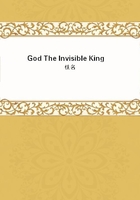
第6章
By the fifth century Christianity had adopted as its fundamental belief, without which everyone was to be "damned everlastingly," a conception of God and of Christ's relation to God, of which even by the Christian account of his teaching, Jesus was either totally unaware or so negligent and careless of the future comfort of his disciples as scarcely to make mention. The doctrine of the Trinity, so far as the relationship of the Third Person goes, hangs almost entirely upon one ambiguous and disputed utterance in St. John's gospel (XV. 26). Most of the teachings of Christian orthodoxy resolve themselves to the attentive student into assertions of the nature of contradiction and repartee. Someone floats an opinion in some matter that has been hitherto vague, in regard, for example, to the sonship of Christ or to the method of his birth. The new opinion arouses the hostility and alarm of minds unaccustomed to so definite a statement, and in the zeal of their recoil they fly to a contrary proposition. The Christians would neither admit that they worshipped more gods than one because of the Greeks, nor deny the divinity of Christ because of the Jews. They dreaded to be polytheistic; equally did they dread the least apparent detraction from the power and importance of their Saviour. They were forced into the theory of the Trinity by the necessity of those contrary assertions, and they had to make it a mystery protected by curses to save it from a reductio ad absurdam. The entire history of the growth of the Christian doctrine in those disordered early centuries is a history of theology by committee; a history of furious wrangling, of hasty compromises, and still more hasty attempts to clinch matters by anathema. When the muddle was at its very worst, the church was confronted by enormous political opportunities. In order that it should seize these one chief thing appeared imperative: doctrinal uniformity. The emperor himself, albeit unbaptised and very ignorant of Greek, came and seated himself in the midst of Christian thought upon a golden throne. At the end of it all Eusebius, that supreme Trimmer, was prepared to damn everlastingly all those who doubted that consubstantiality he himself had doubted at the beginning of the conference. It is quite clear that Constantine did not care who was damned or for what period, so long as the Christians ceased to wrangle among themselves. The practical unanimity of Nicaea was secured by threats, and then, turning upon the victors, he sought by threats to restore Arius to communion. The imperial aim was a common faith to unite the empire. The crushing out of the Arians and of the Paulicians and suchlike heretics, and more particularly the systematic destruction by the orthodox of all heretical writings, had about it none of that quality of honest conviction which comes to those who have a real knowledge of God; it was a bawling down of dissensions that, left to work themselves out, would have spoilt good business; it was the fist of Nicolas of Myra over again, except that after the days of Ambrose the sword of the executioner and the fires of the book-burner were added to the weapon of the human voice. Priscillian was the first human sacrifice formally offered up under these improved conditions to the greater glory of the reinforced Trinity. Thereafter the blood of the heretics was the cement of Christian unity.
It is with these things in mind that those who profess the new faith are becoming so markedly anxious to distinguish God from the Trinitarian's deity. At present if anyone who has left the Christian communion declares himself a believer in God, priest and parson swell with self-complacency. There is no reason why they should do so. That many of us have gone from them and found God is no concern of theirs. It is not that we who went out into the wilderness which we thought to be a desert, away from their creeds and dogmas, have turned back and are returning. It is that we have gone on still further, and are beyond that desolation. Never more shall we return to those who gather under the cross. By faith we disbelieved and denied. By faith we said of that stuffed scarecrow of divinity, that incoherent accumulation of antique theological notions, the Nicene deity, "This is certainly no God." And by faith we have found God. . . .
3. THE INFINITE BEING IS NOT GOD